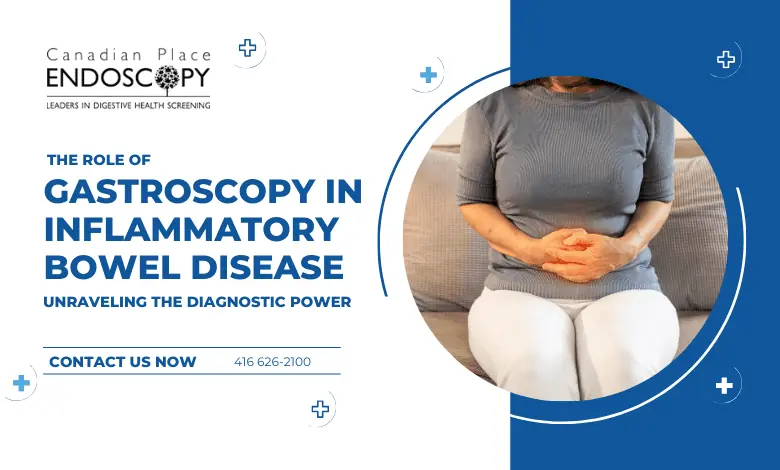The Role of Gastroscopy in Inflammatory Bowel Disease: Unraveling the Diagnostic Power

In the realm of medical diagnostics, gastroscopy emerges as a pivotal tool in the identification and management of Inflammatory Bowel Disease (IBD). Our commitment to delivering authoritative and comprehensive content aims to elucidate the critical role that gastroscopy plays in the diagnosis and understanding of IBD, surpassing conventional explanations and establishing a new standard of informational depth.
Understanding Inflammatory Bowel Disease
To embark on this enlightening journey, we must first comprehend the nuances of Inflammatory Bowel Disease. IBD encompasses a spectrum of chronic inflammatory conditions affecting the digestive tract, primarily classified as Crohn’s disease and ulcerative colitis. The complexity of IBD demands precise diagnostic measures, and this is where gastroscopy steps into the spotlight.
Gastroscopy Demystified: A Window into the Gastrointestinal Tract
Gastroscopy, also known as upper endoscopy, is a diagnostic procedure involving the use of a flexible tube equipped with a light and camera to visualize the upper part of the gastrointestinal tract. Contrary to common misconceptions, gastroscopy is not limited to examining the esophagus and stomach; it extends its reach to the duodenum, providing a comprehensive view that aids in the detection of IBD. If you are seeking a Gastroscopy clinic in Toronto, our experienced professionals provide thorough and accurate diagnostic services in a state-of-the-art facility.
Also Read: The Ultimate Guide to Gastroscopy Treatment: What You Need to Know
Key Advantages of Gastroscopy in IBD Diagnosis
1. Precision in Lesion Identification
Gastroscopy enables healthcare professionals to meticulously identify lesions, ulcers, and areas of inflammation within the digestive system. This precision is crucial in distinguishing between Crohn’s disease and ulcerative colitis, facilitating tailored treatment plans.
2. Tissue Biopsy for Definitive Diagnosis
A distinguishing feature of gastroscopy lies in its capability to obtain tissue samples (biopsy) during the procedure. These biopsies offer a microscopic perspective, allowing for a definitive diagnosis of IBD and aiding in the determination of disease severity.
3. Early Detection and Intervention
Gastroscopy stands as a frontline defender in the early detection of IBD. Detecting the disease at its nascent stages empowers medical professionals to initiate prompt intervention, potentially preventing complications and improving long-term patient outcomes.
Navigating the Gastroscopy Procedure: What to Expect
For individuals undergoing gastroscopy, understanding the procedure is crucial for allaying concerns and fostering a collaborative approach between patients and healthcare providers.
1. Pre-procedural Preparations
Prior to the gastroscopy, patients are typically instructed to fast for a specified duration. This fasting period ensures optimal visualization during the procedure, enhancing the accuracy of diagnostic findings.
2. The Gastroscopy Experience
The actual gastroscopy procedure is relatively swift, usually taking around 15 to 30 minutes. Patients are administered a sedative to minimize discomfort, and the flexible tube is gently inserted through the mouth, providing a real-time visual examination.
3. Post-procedure Guidance
Following the gastroscopy, patients may experience mild throat discomfort, which dissipates shortly. Detailed post-procedure guidance, including dietary recommendations and potential side effects, is provided to ensure a seamless recovery process.
Gastroscopy vs. Alternative Diagnostic Modalities: Setting the Standard
While various diagnostic modalities exist for investigating gastrointestinal concerns, gastroscopy distinguishes itself by offering a comprehensive examination that extends beyond the capabilities of alternatives such as radiographic imaging and blood tests. Its unique ability to directly visualize and biopsy the affected areas elevates it to the forefront of IBD diagnostics.
Conclusion: Empowering Patients, Enhancing Outcomes
In conclusion, the pivotal role of gastroscopy, particularly in the context of bowel preparation, in the diagnosis of Inflammatory Bowel Disease cannot be overstated. Its precision, ability to obtain tissue samples, and contribution to early detection position it as an indispensable tool in the hands of healthcare professionals. By embracing the depth of information presented here, patients and practitioners alike can navigate the realm of IBD with clarity and confidence.









